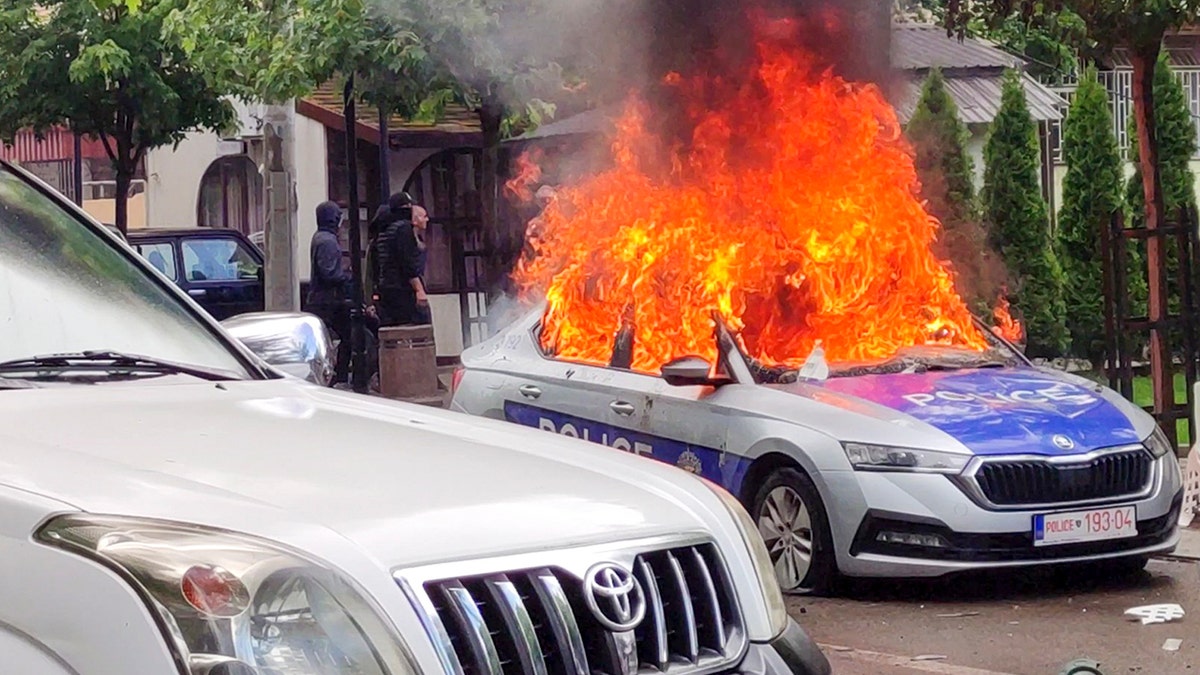Three Kosovo police officers detained in Serbia earlier this month have been released by a Serbian court, easing some of the tension between the two Balkan nations. The U.S. and EU had previously called for their release.
A court in Kraljevo, Serbia, charged the officers with illegal possession of weapons and explosives but granted their release pending further proceedings. While allowed to return to Kosovo, the exact timing of their return remains unclear. Fatmir Haxholli, Kosovo's representative in Serbia, shared a photo on social media with the officers after their apparent release.
Although the officers have been freed, Serbia's chief negotiator with Kosovo, Petar Petkovic, stated that legal proceedings will continue, emphasizing the court's decision was judicial, not political. Kosovo officials maintain the officers were kidnapped within Kosovo's borders and transported to Serbia, demanding accountability for the alleged violation of their territory. President Vlosa Osmani expressed gratitude to the United States for their role in securing the release.

Prime Minister Albin Kurti celebrated the officers' return while also condemning the detention as a severe human rights violation requiring repercussions for Serbia's actions. The incident, which occurred in mid-June, sparked disagreements about the location of the officers' arrest. Serbia claims they crossed the border, while Kosovo insists they were abducted within their territory.
This dispute exacerbated existing tensions between Serbia and Kosovo, culminating in recent violent confrontations in northern Kosovo, a Serb-majority area. These events have raised concerns about a resurgence of the 1998-99 Kosovo conflict. Last week, the EU mediated talks between the two countries' leaders to de-escalate the situation, urging immediate action from both sides.
The root of the conflict lies in Serbia's refusal to recognize Kosovo's 2008 declaration of independence. With the ongoing war in Ukraine, international efforts to resolve the Kosovo-Serbia conflict have intensified to maintain regional stability. Recent tensions ignited when Kosovo police occupied municipal buildings in Serb-majority northern Kosovo to install ethnic Albanian mayors elected in April after a Serb boycott of the elections.
Serbia has responded by demanding the withdrawal of Kosovo police and the mayors, along with the release of detained ethnic Serbs. They've also increased military preparedness, raising the possibility of intervention over alleged mistreatment of ethnic Serbs in Kosovo. Consequently, the U.S. cancelled Kosovo's participation in a military exercise and suspended high-level visits to Pristina.
International recognition of Kosovo's independence is divided, with the U.S. and most EU nations recognizing it, while Russia and China support Serbia's claim to the territory. The historical context of the conflict dates back to NATO's 1999 intervention to halt Serbia's crackdown on ethnic Albanian separatists, ultimately leading to Serbia losing control of Kosovo.
Comments(0)
Top Comments